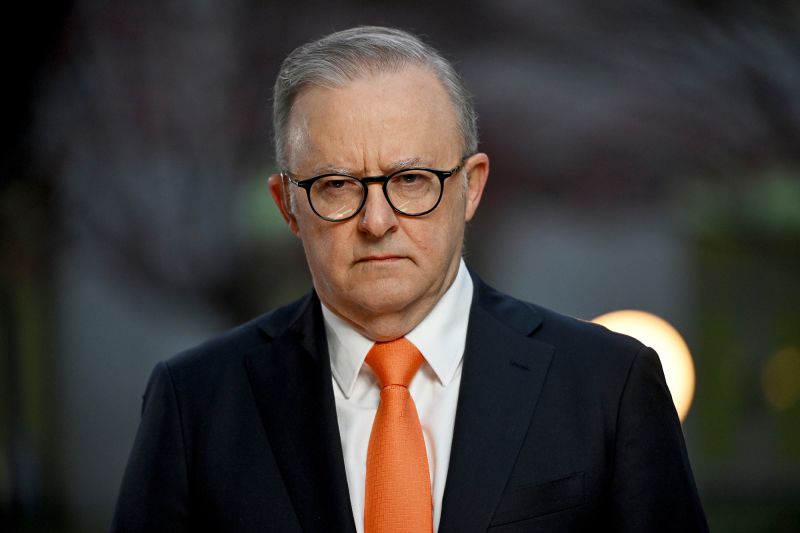
Australian Prime Minister Anthony Albanese’s Apology: Regret Over ‘Hurtful’ Tourette’s Syndrome Remark
Australian Prime Minister Anthony Albanese Apologizes for Hurtful Tourette’s Syndrome Jibe
The recent incident involving Australian Prime Minister Anthony Albanese and his hurtful jibe towards an audience member with Tourette’s Syndrome has sparked outrage and controversy. The incident occurred during a press conference held by the Prime Minister, where he made an insensitive and mocking remark towards a person with Tourette’s Syndrome who was present among the audience.
The video of the incident quickly went viral on social media, drawing widespread condemnation from various quarters. Many individuals and organizations, including disability rights groups and advocacy organizations, criticized the Prime Minister for his behavior and called for an immediate apology.
In response to the backlash, Prime Minister Albanese issued a public apology, expressing regret for his insensitive comment and acknowledging the hurtful impact it had on the individual with Tourette’s Syndrome and the wider community. He stated that he was deeply sorry for any offense caused and that his words were not reflective of his beliefs or values.
The incident serves as a poignant reminder of the importance of sensitivity, respect, and empathy towards individuals with disabilities. Mocking or making light of someone’s disability, whether intentional or not, can have a profound and lasting impact on the individual’s self-esteem and sense of worth.
It is crucial for individuals in positions of power and influence, such as political leaders, to set a positive example and demonstrate a commitment to inclusivity, diversity, and compassion. By apologizing for his remarks and acknowledging the harm caused, Prime Minister Albanese has taken a step towards repairing the damage and reaffirming his commitment to upholding the dignity and rights of all individuals, regardless of their background or abilities.
Moving forward, it is essential for society as a whole to reflect on the incident and consider the broader implications of our words and actions towards individuals with disabilities. By fostering a culture of understanding, acceptance, and support for all members of our community, we can create a more inclusive and equitable society where everyone is valued and respected.
